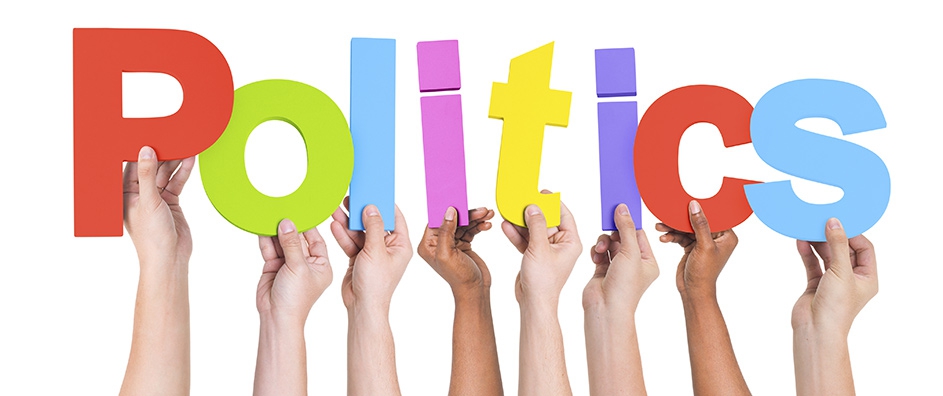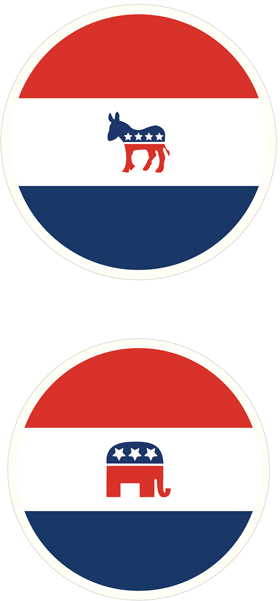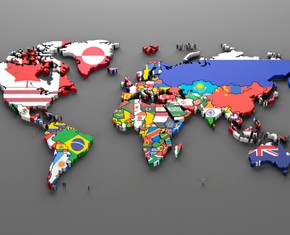The views expressed in our content reflect individual perspectives and do not represent the authoritative views of the Baha'i Faith.
 Would you like to see significant changes in our society–or do you feel generally happy with the way things are? Do you think of yourself as a person who favors reform or one who wants to preserve the status quo?
Would you like to see significant changes in our society–or do you feel generally happy with the way things are? Do you think of yourself as a person who favors reform or one who wants to preserve the status quo?
That usual dividing-line question delineates the difference between progressives and conservatives. Simply, a person who thinks progressively sees the current state of things and wants them to “progress” and change. And just as simply, a person who thinks conservatively sees the current state of things and wants to “conserve” them, so they stay that way.
This has nothing to do with party politics. Unfortunately, the political systems of many countries have co-opted and corrupted those traditional terms and used them for their own purposes–to divide and conquer. Partisan political organizations want us to identify with one of those ideological labels, and align ourselves with their agendas.
But when you think about the original intent of those perfectly fine words, and try to separate their real meanings from the baggage they’ve accumulated via partisan politics, they do map out a stark dichotomy. A conservative person, according to Webster’s, is “disposed to preserve existing conditions and institutions,” while a progressive person “favors or advocates progress, change, improvement or reform, as opposed to wishing to maintain things as they are.”
By those definitions, Baha’is definitely fit the progressive description. The Baha’i teachings urge change and reform in just about every department of human endeavor, saying that we live in:
…an age of universal reformation. Laws and statutes of governments civil and federal are in process of change and transformation. Sciences and arts are being moulded anew. Thoughts are metamorphosed. The foundations of human society are changing and strengthening. Today sciences of the past are useless. The Ptolemaic system of astronomy, numberless other systems and theories of scientific and philosophical explanation are discarded, known to be false and worthless. Ethical precedents and principles cannot be applied to the needs of the modern world. Thoughts and theories of past ages are fruitless now. Thrones and governments are crumbling and falling. All conditions and requisites of the past unfitted and inadequate for the present time, are undergoing radical reform. – Abdu’l-Baha, Baha’i World Faith, pp. 228-229.
In a world where we see constant war, the Baha’i teachings advocate peace. Where we now see vast differences of wealth and poverty, the Baha’i teachings encourage a progressive movement toward the elimination of such extremes. Where we see huge disparities between the educated and the uneducated, the Baha’i teachings call for universal compulsory education across the globe. Where we experience hatred, prejudice and bigotry, the Baha’i teachings ask all of us to work for the unification and harmony of the entire human race. Where we see enormous inequities and injustice toward women, the Baha’i teachings advance the absolute equality of women and men.
Baha’is want to reform the world. Baha’u’llah asked everyone to work toward the goal of a world without violence, injustice, oppression and hatred. He called on us all to find ways to apply the Baha’i principles to a consistent pattern of global reform, to bring about a new planetary civilization, to build upon (and conserve) the progress we’ve made in the material realm of the sciences and apply it with equal energy and diligence to the spiritual realm.
How do we get there from here?
Patience. The Baha’i writings say that all lasting change takes time:
It is certain that momentous undertakings cannot be brought to a successful conclusion in haste; that in such cases haste would only make waste.
The world of politics is like the world of man; he is seed at first, and then passes by degrees to the condition of embryo and fetus, acquiring a bone structure, being clothed with flesh, taking on his own special form, until at last he reaches the plane where he can befittingly fulfill the words: “the most excellent of Makers.” Just as this is a requirement of creation and is based on the universal Wisdom, the political world in the same way cannot instantaneously evolve from the nadir of defectiveness to the zenith of rightness and perfection. Rather, qualified individuals must strive by day and by night, using all those means which will conduce to progress, until the government and the people develop along every line from day to day and even from moment to moment. – Abdu’l-Baha, The Secret of Divine Civilization, pp. 105-106.
However–patience, for Baha’is, does not mean waiting forever:
If, however, by delay and postponement they mean this, that in each generation only one minute section of the necessary reforms should be attended to, this is nothing but lethargy and inertia, and no results would be forthcoming from such a procedure, except the endless repetition of idle words. If haste is harmful, inertness and indolence are a thousand times worse. – Abdu’l-Baha, The Secret of Divine Civilization, p. 106.
Social activists, change agents and workers for progressive social evolution, take heart – the Baha’i teachings honor and encourage your devotion and your actions. They call, at the same time, for a patient and humble approach to reforming society.
You May Also Like
Comments


















As with any political ideology, Christian democracy has had different manifestations over time and between countries; there are several types of ideology that are called Christian democracy.
As a generalization, it can be said that Christian democratic parties in Europe tend to be moderately conservative, and in several cases form the main conservative party in their respective countries (e.g. in Germany, Spain, and Belgium). In Latin America, by contrast, Christian democratic parties tend to be progressive and to ...some degree influenced by liberation theology. These generalizations, however, must be nuanced by the consideration that Christian democracy does not fit precisely into the usual categories of political thought, but rather includes elements common to several other political ideologies:
In common with conservatism, traditional moral values (on marriage, abortion, etc.), opposition to secularization, a view of the evolutionary (as opposed to revolutionary) development of society, an emphasis on law and order, and a rejection of communism.
In contrast to conservatism, open to change (for example, in the structure of society) and not necessarily supportive of the social status quo.
In common with liberalism, an emphasis on human rights and individual initiative.
In contrast to liberalism, a rejection of secularism, and an emphasis on the fact that the individual is part of a community and has duties towards it.
In common with socialism, an emphasis on the community, social justice and solidarity, support for a welfare state and support for regulation of market forces.
In contrast to socialism, most European Christian Democrats support a market economy and do not adhere to the concept of class struggle. This has not always carried over to some Latin American Christian Democratic Parties, which have been influenced by liberation theology.
Ware said that Australia, Germany, Israel, Italy, Japan, Malta, New Zealand, Spain and the US had no conservative parties, although they had either Christian Democrats or liberals as major right-wing parties. So remember the parties in America and the rest of these countries don't advocate for true conservatism, but rather liberalism, Christian democracy, or some combo of the two. While the Republican Party is more in line with the liberalism described above, the Libertarian Party is most in line with it. (Third parties are insignificant in a two party system, hence no porcupine/hedgehog along with the elephant and the donkey.)
In Australia, the Liberal Party is a party considered to be of the centre-right. Within the Liberal Party of Australia, conservatism and monetarist economics are both in a position of dominance. Many would argue that this party is indeed a liberal party, simply a classical liberal party and that it is the perception of what liberalism is that has changed, not the Liberal Party (which promotes the free market approach that liberals worldwide used to promote before the 20th century). Other would stress conservatism as its ideology. The term small-l liberal generally refers to someone who champions civil liberties and progressive causes such as Australian republicanism and reconciliation with Indigenous Australians, as in parties such as the Australian Democrats, which began its life as a fusion of social-liberals disaffected with the Liberal Party.
In Germany, the Free Democratic Party (Freie Demokratische Partei, member LI, ALDE) is a liberal party.
In Israel, Shinui (שינוי, in English Change, member LI) is a strongly anti-clerical, market liberal party without parliamentary representation since 2006. One of its founders, some of its members, and many of its voters joined the new Kadima Party. The center-right Likud calls itself a "National-Liberal Party."
In Italy, liberals are now divided over the centre-right Forza Italia (originally a merger of liberal and Christian-democratic forces in 1994, and reconstituted in 2013 from The People of Freedom), the Civic Choice party founded in 2013 to support then-Prime Minister Mario Monti, and various minor extra-parliamentary movement including the liberal-libertarian Italian Radicals (member ALDE Party). Also the centrist-populist Italy of Values is a member of ALDE Party, although it is not classifiable as a liberal party in whichever sense. Most members of the late Italian Liberal Party (refounded as a very small party in 2004) and many former members of the Italian Republican Party joined Forza Italia, which is often presented and defined in Italy as a liberal party. This is the reason why the term 'liberals' is more often used when speaking of the centre-right coalition, dominated by Forza Italia, which combines economic liberalism with freedom of conscience on ethical matters.
In Japan, the word liberal is used by the main conservative party, the Liberal Democratic Party (Jiyu Minshuto). The Democratic Party (Minshu-to) is a social-liberal/social-democratic party. The Liberal League (Jiyu Rengo) was considered to be a free-market liberal party. Your Party is a market liberal or libertarian party.
In Malta there are two liberal parties: Alleanza Liberal-Demokratika Malta and Alpha Liberal Democratic Party.
In New Zealand, Liberalism is not organized anymore, although the Liberal Party was the first organised political party, and the Liberal Government from 1891 to 1912 was responsible for many reforms. Liberalism nowadays refers to a support for individual liberties and limited government. The term is generally used with a reference to a particular policy area, e.g. "market liberalism" or "social liberalism". Unqualified liberalism is less common; in its extreme form it is known by the American term libertarianism. The left of centre New Zealand Democratic Party takes a more or less progressive liberal position in the spectrum, but lost popular support. ACT New Zealand is a classical liberal or libertarian party.
In Spain, there is a long tradition of liberalism. This ended with the Franco dictatorship. On a national level there were attempts to establish liberal parties, but they did not succeed. On a regional level, the Canarian Coalition (Coalición Canaria) and the Democratic Convergence of Catalonia (Convergència Democrática de Catalunya) are regionalist liberal parties, but also nationalist.
In the United States, the primary use of the term liberal is at some variance with European and worldwide usage. In the United States today it is most associated with the definition of modern liberalism which is a combination of social liberalism, public welfare and a mixed economy,[1] which is in contrast to classical liberalism. In the 19th century it was not a common term in American philosophy or politics, partially because the two main parties were a mixture of populist and nationalist elements. ("Conservatism" was not a common term until the mid-20th century as well.) The Democratic Party was the party of free trade, low tariffs and laissez-faire entrepreneurialism, while the Republican Party advocated national citizenship, transparency and government efforts to stabilize the currency. Liberalism in the United States was primarily defined by the self-proclaimed liberal presidents Woodrow Wilson and Franklin Roosevelt. While the emphasis on mutual collaboration through liberal institutions as an alternative to the threat and use of force remained consistent with international liberalism, United States liberals also claimed that individuals have a right to expect the government to guarantee social justice. This was in part a consequence of the influence of the ideas of British economist John Maynard Keynes on Franklin D. Roosevelt's New Deal. The New Deal had the effect of stealing the thunder of social democratic forces and the necessity to prevent social unrest strengthened this development. As McCarthyism gave the terms socialism and even social democracy a meaning synonymous with communism in the U.S., many to the left of center moderated their views, aligning with the New Deal liberals. The Democratic Party is identified as the liberal party within the broader definition of liberalism thus putting it in contrast with most other parties listed here. Democrats advocate more social freedoms, affirmative action, and a mixed economy (and therefore modern liberalism). The Republican Party experiences a somewhat fractured economic viewpoint with some members supporting strong free-market and libertarian views (and therefore economic liberalism) and others championing pro-business stances, though both sectors typically mix their fiscal views with strong aspects of social conservatism. The Libertarian Party is the third largest political party in the United States, (though still only getting 1-2% of the vote in congressional elections), and particularly centers itself on free markets and individual liberty, which is more in line with classical liberalism.
The definition of liberal party is highly debatable. In the list below, a liberal party is defined as a political party that adheres to the basic principles of political liberalism. This is a broad political current, that includes left, centre and right wing. All liberal parties emphasise individual rights, but they differ in their opinion on an active role for the state.
After liberals have gained power and realized their first reforms, one often sees a divergence within their ranks:
Some are satisfied and rest apart with these reforms, developing into liberal conservatives or simply becoming conservatives, mostly still adhering to free market policies. An example is the Liberal Democratic Party (Japan). These parties are not included in the overview.
The mainstream of liberalism continues on the path of gradual reforms, embraces electoral democracy as a basic liberal position and organizes itself in the form of the traditional liberal parties. These parties are included in the overview.
Part of this mainstream is more right-wing, emphasizing classical liberal issues and concentrating on economic liberalism. This is, for example, the origin of libertarianism. Many people consider this a separate political theory/current. Others argue that these parties are still liberal parties. Therefore they are included in the overview.
Another part of the mainstream is more left-wing. It embraces and emphasizes democratic reforms and often strives for social reforms. These parties sometimes prefer to name themselves radical or progressive liberal and are generally quite positive about the role of the state in the economy, by advocating Keynesianism for example, while continuing to support a market economy. United States liberalism developed out of this tradition, also referred to as social liberalism. Progressive liberals tend to use labels such as "Radical", "Progressive", "Free-thinking" or simply "Democratic" instead of "Liberal". These parties are included in the overview.
For some liberals this does not go far enough: they joined social democratic parties. They are not included in the list.
Next to these development one sees the rise of new centrist or pragmatic parties that share liberal values and develop into liberal or similar parties. These parties are included in the overview too.
Finally one sees liberals joining parties with a broader political range. This happens especially in countries where the electoral system favors a two-party system.
Note: In some cases the liberal current has steered into a populist direction (e.g. the Freedom Party of Austria), while in other cases populist parties have adopted the word "liberal" in their names (e.g. the Liberal Democratic Party of Russia and the Lithuanian Liberal Democratic Party. These parties have only a tenuous connection - if any - to liberalism.
Many liberal or similar parties are members of the Liberal International and/or of its regional partners, like the Alliance of Liberals and Democrats for Europe Party and the Council of Asian Liberals and Democrats. Generally, membership in these international organizations is an indication that a party is indeed liberal. Therefore, all members are listed. However, some of them are quite centrist parties whose liberal character is disputed by some.
refreshing not to be aligned with any of the above mentioned groups.
“O ye Cohorts of God! Today in the present world each community is wandering in a
wilderness, moving in accord with some passion and desire, and running to and
fro in pursuance of his own imagination. Among the communities of the world,
this community of the “Most Great Name” is free from every thought, keeping
aloof from every project and scheme, arising with the purest designs and
intentions, and striving and endeavoring with the utmost hope to live in ...
accordance with the divine teachings in order that the surface of the earth
become the delectable paradise, the nether world become the mirror of the
Kingdom, the universe become another universe, and the human race attain to
higher morals, conduct and manners.”
If you had to choose a group that would wish to “attain to higher morals, conduct
and manners”, which one would it be?
Interesting choice of words “keeping aloof from”.
Most people in our society, not just certain political factions, want to make the world a better place. It's important for Baha'is to seek agreement with them so that we can cooperate. At the same time, Baha'is must be careful to model their behavior and their vision for society on the Baha'i writings, and not on the prevailing notions of what is forward thinking today.
I grew up as a Baha'i in a very left wing part of the United States, ...and in many ways my politically progressive peers found me quite odd. Some of them would say I was a conservative because I practice chastity and believe in the authority of religion. It was as if I wasn't allowed to have thoughts that fell on different sides of the political map. (In the U.S. most opinions are seen as aligned with one of the two dominant political parties, even when the discussion has nothing to do with politics). I'm ultimately grateful for these clashes of opinion. It pushed me to dig deeper to explain my beliefs, and gave me a chance to share them with others. This led to some great conversations about society that were searching and unpredictable, not bound by the script of progressive vs. conservative.
If Baha'is are to engage with different viewpoints in a productive way, we need 2 forms of study. First, we must study the Baha'i Writings and internalize them. This isn't done in isolation, but in response to personal growth, social concerns, and the insights and questions of people around us. Second, we must study the implications of the beliefs and practices of society around us. Some things look like they agree with the Baha'i Faith on the surface, but are actually based on a completely different conception of human nature, or headed in a direction where we don't want to go.
Here is a couple examples of ways the progressive Left diverges from the Baha'i Teachings. I hope others can comment and add their thoughts.
1. Progressive politics assumes enemies. Enemies don't deserve to be heard, to be engaged in respectful conversation, or to have a stake in decision making. Backbiting against them is acceptable, and negotiating or sympathizing calls into question your commitment to the progressive cause.
Baha'is believe consultation, not fighting, is the way to make decisions. We don't overpower those we disagree with, but actually consider their views. Backbiting is forbidden because consultation requires trust. The goal is to stop thinking about defending your idea and instead try to find the truth. When we reach a decision, we carry it out wholeheartedly without arguing. If needed, we can consult later and try something else. In politics, the opposition works to undermine government action, resulting in paralysis and endless arguments about which idea would work if it was fully carried out.
2. Many progressives find it very hard to accept authority, especially if it's based on religion. Baha'is obey God, the written word of God, and our institutions. We don't lobby our institutions until we get what we want. In turn, our institutions don't suppress us or brainwash us into supporting them. Baha'i institutions encourage Baha'is to take initiative and actively seek out input and experience from the grassroots level. Baha'i institutions make decisions according to their conscience. They are spared from the tedious task of weighing every decision against political calculation or pleasing a faction that elected them. The result is impressive unity and cooperation between members of our institutions, sadly lacking in the governments of the world.
3.
According to Alan Ware, Belgium, Denmark, Iceland, Finland, France, Greece, Iceland, Luxembourg, Netherlands, Norway, Sweden, Switzerland, and the UK retained viable conservative parties into the 1980s. Ware said that Australia, Germany, Israel, Italy, Japan, Malta, New Zealand, Spain and the US had no conservative parties, although they had either Christian Democrats or liberals as major right-wing parties. Canada, Ireland, and Portugal had right-wing political parties that defied categorization: the Progressive Conservative Party of Canada; Fianna Fáil, Fine Gael, and Progressive Democrats in Ireland; and the Social Democratic Party of Portugal. Since then, the Swiss People's Party has moved to the extreme right and is no longer considered to be conservative.
I agree with Greg Hodges on the vagueness of terms. Social progress has varying definitions for example. Neo-conservatism, which returns to the old idea that nothing ever truly changes in the human condition, and the eternal values of religion. The ability of people to change anything other than themselves is vastly overrated. Here, the emphasis is on honoring a traditional way of life which proved itself as superior in the past, to which we should adhere. Neo-liberalism, which affirms the power and potential of change, but only on a personal, individual level. The idea that the state should be an instrument of social betterment in society as a whole is totally rejected; only free choices made in markets can hold any promise of social progress. Socialism, which argues that state direction of social progress could have very important positive results; at the simplest level, would be able to help the poor by taking from the rich. This leads to the defense of public services and assets, and the case for heavy regulation of market activity. Resource-based economy, A resource-based economy would replace the need for the current monetary economy, which is "scarcity-oriented" or "scarcity-based". The concept creator Jacque Fresco argues that the world is rich in natural resources and energy and that — with modern technology and judicious efficiency — the needs of the global population can be met with abundance, while at the same time removing the current limitations of what is deemed possible due to notions of economic viability. Various strands of new radicalism, which begin to question again the objective criteria by which we could measure human social progress. For example, labor productivity might be a criterion of social progress, but how about infant mortality? This kind of thinking rejects the political traditions of the past, and argues that a variety of criteria must be applied to assess social progress. In some cases, this leads to new charters for the moral criteria to which a society should aspire; in other cases, authentic lived experience in society with all its complexities is emphasized.